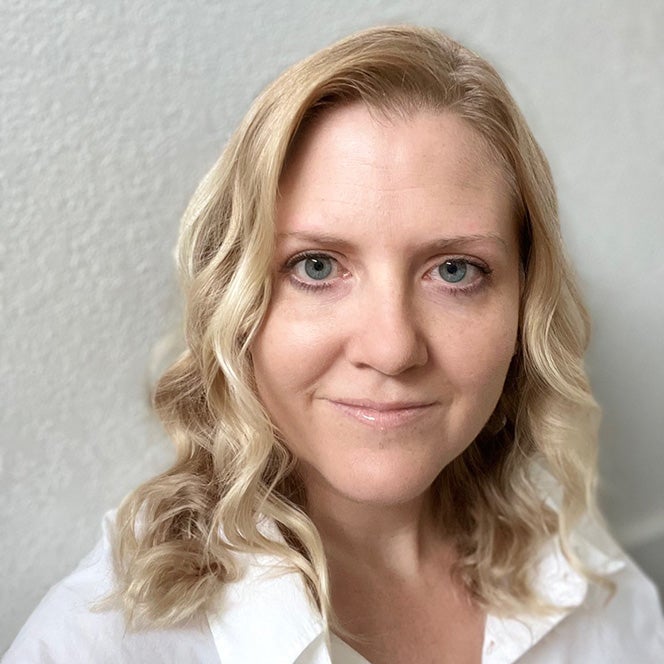
Training Development Officer in the Canadian Forces
Whether you are new to organizational performance and workplace learning (OPWL), or a seasoned veteran in the realm of instructional design, this program is right for you. As a Training Development Officer in the Canadian Armed Forces for the past decade, OPWL was an eye-opener for me in more ways than one. I found that the learning goals, principles and professional standards often paralleled those that we value as TDOs, yet provided the underlying scientific theories and HPT models that could be used to address performance issues. Throughout the OPWL program, I refined my approach to performance issues, using systematic, evidence-based approaches to view problems systemically.
Each OPWL course provided opportunities to address a variety of real-life performance problems using various models. I worked with others on workplace problems I was facing, addressing the underlying reasons for performance deficiencies through team projects, applying theories, providing feedback and learning in a collaborative environment. All in all, the group learning dynamic was fantastic, with peer reflections and nuggets of wisdom adding significantly to my toolbox of tricks, transitioning from basic understanding and application of concepts, to analyzing, evaluating and even creating within Bloom’s taxonomy.
OPWL allowed me to solidify my foundation in HPT, providing me with the knowledge and skills to identify, analyze, and solve a variety of human, organizational, and workplace performance problems. My biggest takeaway of my OPWL journey is truly recognizing that every organization is a system with interconnected components. The greatest impacts on performance are realized when the entire system is addressed, maximizing positive impacts on the environment, socially and economically. As HPT practitioners, we need to view organizations as part of a larger system, weaving environmental and social factors alongside economic factors as a natural part of the health of the organization. More importantly, is how all the pieces fit together, from the worker level to the organizational level and beyond.
In joining the OPWL program, I became a part of the OPWL community. Easily approachable and ready to serve, all staff members have contributed to a positive learning experience. Faculty members, from full-time associate professors, department chair, to adjunct professors, all contribute to a positive learning experience. Instructional staff members are experts in their field, with years of experience in the field of learning, organizational performance, change management, sustainability and performance improvement. Of note, a big thank you to Jo Ann Fenner, OPWL academic advisor, who has an uncanny ability to make everyone feel important and a cherished member of the OPWL community, providing prompt advice and support. I am proud and excited that I have earned my master’s degree in OPWL, and the community of like-minded professionals that I now belong to.